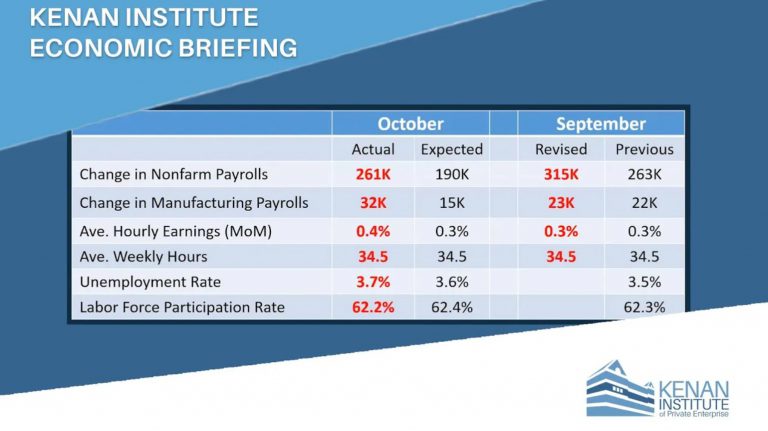
Grand Challenge 2025: The Skills Gap
Our 2025 Grand Challenge examines the skills gap – the difference between the skills that employers seek and those that workers possess – which is being driven by technological breakthroughs, demographic changes and cultural shifts in the workplace.
As deep learning and big data increasingly shape modern artificial intelligence (AI) tools, it is essential to consider the broader impact of integrating AI into workplaces. While AI applications can optimize processes and improve productivity, their long-term effects on workers’ learning curves and overall performance are still underexplored. This paper investigates the intricate relationship between AI-enabled technology and workers’ learning dynamics through a large-scale randomized field experiment conducted on the Instacart platform.

Shaping North Carolina’s Future with Jim Johnson
Johnson, director of the Urban Investment Strategies Center, discusses how his research sheds light on key issues that will help determine the state's economic future.

Join us for the Employability Skills Gap webinar on Oct. 18 at 10 a.m. Dive into the final session of ncIMPACT Initiative's 'Where are the Workers?' series for insights and discussion on workforce needs.
Kenan Institute Distinguished Fellow Thomas Stith, North Carolina Community College System President Jeff Cox and Capgemini’s Jennifer Paylor discuss workforce skills and the economy.
Academics and business leaders shared a panel at our recent Frontiers conference, showing how each can offer insights to help one another develop a broader, shared understanding of changes in the labor market.

A Conversation with Claudia Romo Edelman
We Are All Human founder Claudia Romo Edelman talks with the Kenan Institute about why diversity matters for both employers and employees, and how Hispanic workers in particular are navigating their relationship to the workforce after the pandemic.
UNC Kenan-Flagler Business School Professor Christian Lundblad discussed the Bureau of Labor Statistics’ fresh employment report and what it means for the U.S. economy at the Kenan Institute’s virtual press briefing on Friday, Nov. 4.

WaPo: Productivity Plummets, Uncertainty Abounds
Productivity plunged in the first half of 2022, dropping by the sharpest rate on record going back to 1947. Chief Economist Gerald Cohen was among the experts talking to the Washington Post about what it means.
Nonwage benefits have become more important to employers and employees alike. A new look shows where you work plays a far greater role in the level of benefits you receive than it does your paycheck.
We study the effect of government-subsidized childcare on women's career outcomes and firm performance using linked tax filing data. Exploiting a universal childcare reform in Quebec in 1997 and the variation in its timing relative to childbirth across cohorts of parents, we show that earlier access to childcare increases employment among new mothers, particularly among those previously unemployed.






Skilled Tech Workers Help Drive Local Productivity
As businesses increasingly rely on technology, cities with a strong tech workforce gain a competitive edge, experiencing greater economic growth. This shift can be seen in both urban centers and rural areas.